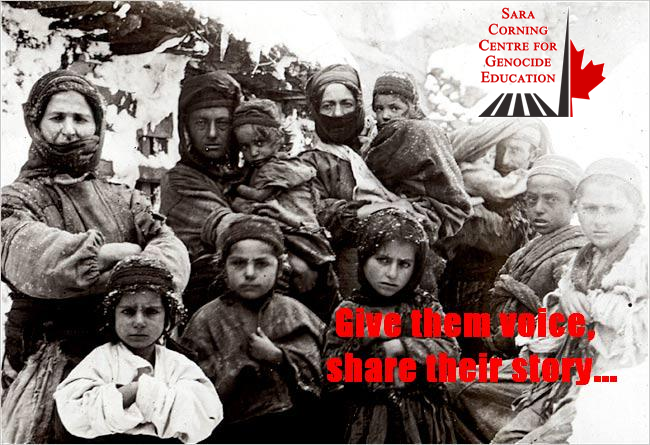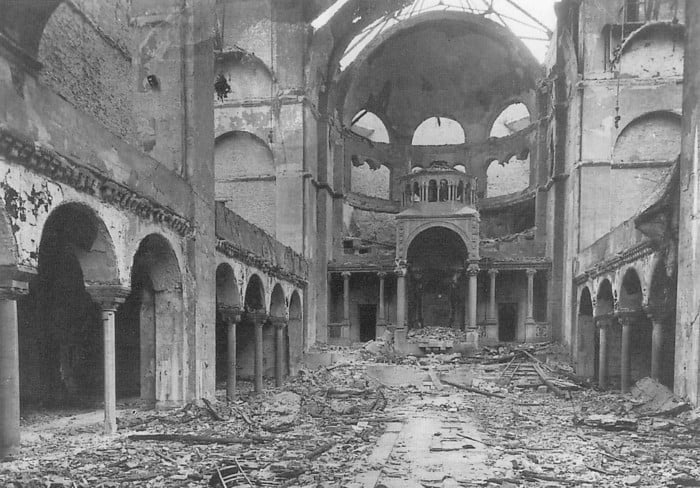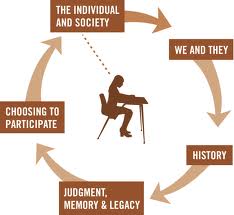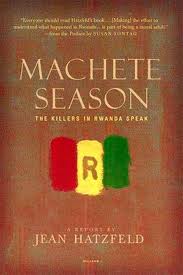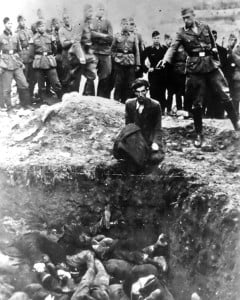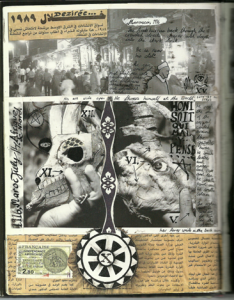“Sir, it keeps happening again and again. We don’t learn. I don’t think we’re going to get better. There doesn’t seem to be much hope.”
Three years ago a grade 12 student said this to me in my West and the World class. Every so often it echoes in my head. She was doing a research paper on Rwanda and the United Nations, and had done a significant amount of reading on the topic and she was passionately upset about how the world had allowed the Rwandan Genocide to happen.
Read More
Topics:
Innovative Classrooms,
genocide,
Genocide and Crimes Against Humanities Course,
Lesson Ideas,
CHG,
Inside a Genocide Classroom,
Social Justice,
reflection
Here at Facing History and Ourselves, we are always reading! As the 8th Commandment of teaching Genocide says "Thou shalt read in order to understand how much more you need to read." As you readjust to being back from March Break feeling wonderfully refreshed, or are restlessly waiting for spring to arrive, and looking for something to pick up for a good read, here are some options, from us to you!
Read More
Topics:
Books,
Professional Development,
Events,
History,
current events,
We and They,
genocide,
In the news
As a history teacher, I often struggle to help my students see the relevance of the past and understand the power it can wield in helping them to navigate the present. With this in mind, I began to plan my unit on the Armenian Genocide. This genocide occurred almost 100 years ago under the cloak of WWI in 1915, when the Ottoman government embarked upon the destruction of its Armenian population. I decided that to give voice to this genocide beyond readings and documentaries, I would invite a guest speaker from the Armenian community.
Read More
Topics:
Choosing to Participate,
Armenian Genocide,
History,
Memorial,
genocide,
Genocide and Crimes Against Humanities Course,
Lesson Ideas,
CHG,
Personal history
This Saturday marks the 75th anniversary of Kristallnacht or “Night of the Broken Glass." On the night of November 9th, 1938, Nazis and their followers looted and destroyed thousands of Jewish homes and businesses, and scores of synagogues. They killed over ninety Jews that night, and sent over 30,000 others concentration camps.
Read More
Topics:
Choosing to Participate,
History,
Memorial,
current events,
genocide,
Genocide and Crimes Against Humanities Course,
In the news,
Social Justice,
reflection
Rob Flosman is assistant head of history at Waterdown District High School in Hamilton. This year he is writing for our sister blog InterFacing. I don't want to give away all the details about his incredible project, the goal of which is to make history personal, relevant, and alive for his students and community, because he says it so well himself! With the support of a 2013 Margot Stern Strom Innovation Grant from Facing History and Ourselves, Rob is in the process of creating a truly incredible legacy for his school and community. Click here to read his first blog on the early stages of his project.
Read More
Topics:
Choosing to Participate,
Facing History Resources,
Identity,
History,
Technology,
genocide,
legacy,
Genocide and Crimes Against Humanities Course,
CHG,
Personal history
As you may have read in other blogs, the “Stand Up, Speak Out” event was an incredible evening of sharing and community. For me it served to exemplify, and personify, the Scope and Sequence of Facing History and Ourselves. On that evening, half a dozen of my students took the stage along with students from three other southern Ontario schools to perform their spoken word pieces. The performances were broken down into the five steps of the Facing History Scope and Sequence:
Read More
Topics:
Choosing to Participate,
Facing History Resources,
Identity,
History,
Urban Education,
project,
We and They,
Strategies,
Culturally Responsive and Relevant Pedagogy,
genocide,
legacy,
Genocide and Crimes Against Humanities Course,
Holocaust and Human Behaviour,
CHG,
reflection
After a year of learning about Genocide and Crimes Against Humanity, students gravitate towards complex and profound questions that are increasingly difficult to answer. In a setting that involves teaching at-risk youth, this type of engagement can be frustratingly elusive. The lesson (content wise) that I will share with you today is one that should not stand alone. This took place in class after having done 3 case studies, including Rwanda, and a unit on concepts of Justice and Memorial. I found that this lesson was very successful at engaging students of all stripes through particular stories of perpetrators to try to gain a better understanding of universal questions of guilt, responsibility, reconciliation, and justice.
Read More
Topics:
Facing History Resources,
History,
Urban Education,
Strategies,
genocide,
Genocide and Crimes Against Humanities Course,
Lesson Ideas,
big paper,
CHG
Graphic imagery is used in this lesson. Please read the full post before teaching this.
I start by displaying the famous photo called "The Last Jew in Vinnitsa."
I say, "This was the title given by the Einsatzgrup soldier in whose pocket it was found, scribbled on the back. Vinnitsa is a small town in the Ukraine whose entire Jewish population was wiped out by the Einsatzgruppen mass killing methods in 1941."
This is all I tell my students when displaying this picture. They have already learned about the Einsatzgruppen and read the selection on "Battalion 101" in Holocaust and Human Behaviour Chapter 7 Reading 3 . They have also been taught that there are three groups involved in genocide: perpetrators, bystanders, and victims.
Read More
Topics:
History,
The Last Jew in Vinnitsa,
genocide,
Genocide and Crimes Against Humanities Course,
Lesson Ideas,
reflection
In our studies of 20th century genocides, we explore the rights and roles of leaders in a sovereign state, and the cardinal rule of state sovereignty that has prohibited intervention: the right to independent authority over a territory. But how should sovereignty be exercised? How do we engage students meaningfully in this question?
Read More
Topics:
Facing History Resources,
History,
Strategies,
genocide,
Totally Unofficial,
Raphael Lemkin,
sovereignty,
Genocide and Crimes Against Humanities Course,
CHG


